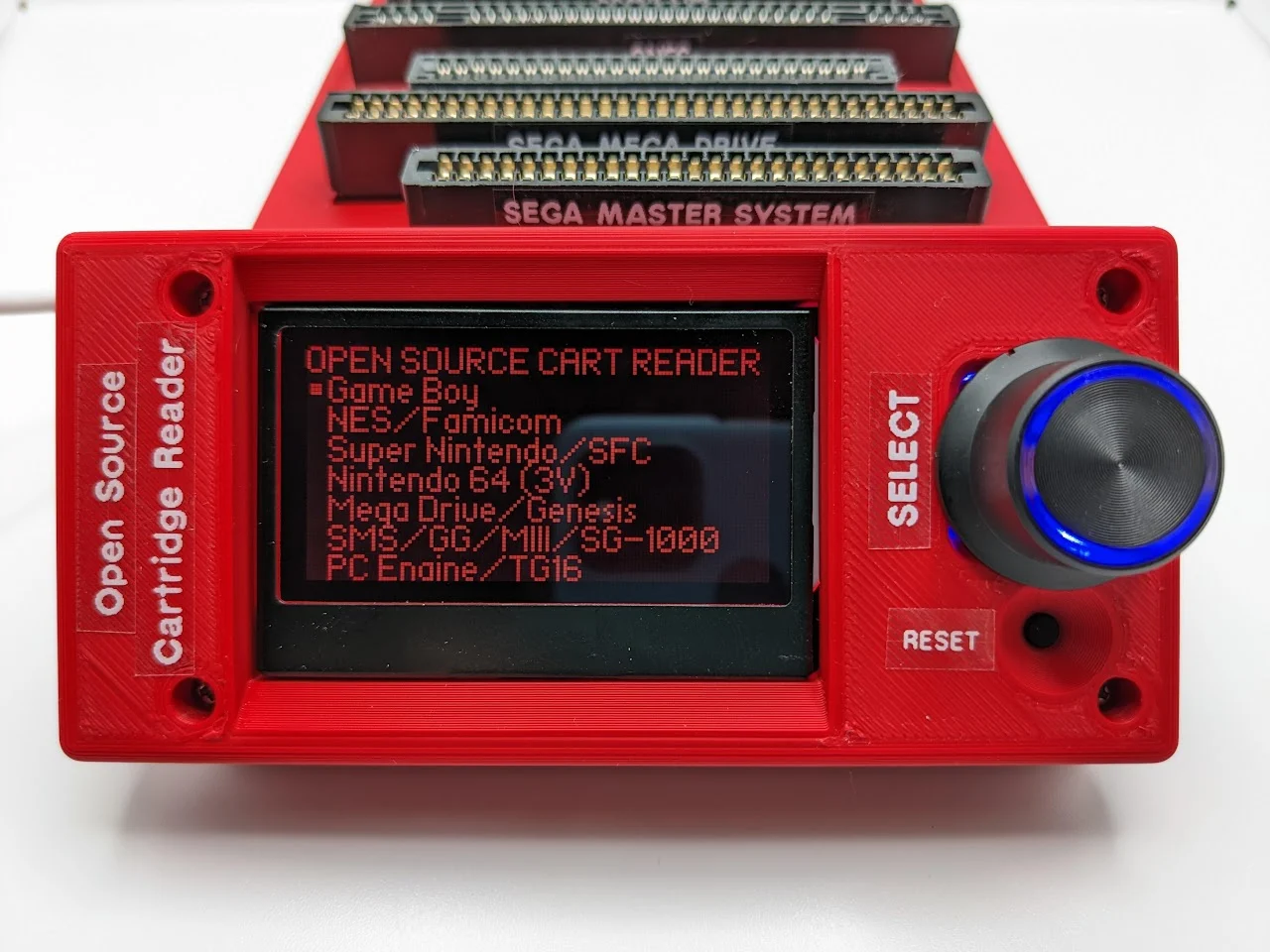The Open Source Cartridge Reader (OSCR) is a versatile tool designed to help preserve video game cartridges and save data. Developed by Sanni and the community, this device allows users to back up ROM files and save games from a wide range of vintage consoles. Here's a detailed look at its features and benefits:Key FeaturesSupported Systems: The OSCR supports numerous systems, including NES, SNES, Nintendo 64, Game Boy, Game Boy Color, Game Boy Advance, Sega Genesis, and more. Additional systems can be supported with adapters. Functionality: It enables users to dump ROMs and save files directly to an SD card without



US$249.99 ready-built, for anybody curious. Not saying it’s not worth that, but that will price a lot of people out of it.
Me.
I was like “oh cool!”
And then I saw the price.
I had someone build one for me a while back. I don’t have any rare cartridges, but the games my dad and I played together have saves that I value. Hopefully the thing works!
Yeah if you can do it yourself it’s about half that. Save the hero builds an older revision but it’s also cheaper.
And if you want to not bother with the systems you don’t have I’d imagine that would make it simpler and cheaper too
Unfortunately not that much less expensive, each additional slot maybe adds $1-2.5 to the project. The screen, Arduino and pcb are the bulk of the cost.
Ah that’s a shame, I guess the ones I’ve seen in the past must have been a bit simpler
Doesn’t seem like a very “open source” price to me.
Why? Open source doesn’t mean “cheap” or “at cost.”
Source is here if you want it to feel more open source by building it yourself. See if you can do it for cheaper after factoring in your labour time.
Yeah at least with their parts lists the material cost is ~$134. So even the places selling kits for $150 are offering a pretty good deal for putting it all in a box for you. ( I assume they’re able to make some savings buying in bulk but still)
Though the benefit of open source is if you only need some of the connectors you should be able to save on the ones you don’t need.
This seems to be targeted at specific people though, who have many of these systems themselves or will be backing up saves as a service for others. For instance I really only need my GB/C/A dumper. An NES dumper would be neat but if I needed that bad it I’d have it, they’re probably $40 last I checked. If you need more than 3 of these systems though the $150 kit would likely save you money.
It pretty much is. I guess that this puts them in the 50$ per hour considering ordering, building and shipping. Considering they give you the instructions to diy it sounds pretty fair. They know they wont sell thousands of copies so they don’t have bulk pricing on components. How much do you charge per hour for your work?
Yeah, this is pretty standard. Between the low production numbers and the fact that assembly is probably occurring in a country with stronger labor laws than wherever mass-producted hardware is made (mostly China), it’s going to cost more than something you can pick up on Amazon or AliExpress.
There have been a few cases where open-source hardware like this has enough demand to get picked up by a Chinese manufacturer who makes a cheaper version through some combo of unethical labor practices, production scale, employing cheaper or cloned parts and/or dropping features, so it’s not out of the question that a cheaper version comes along, as long as you don’t mind the compromises to get it.